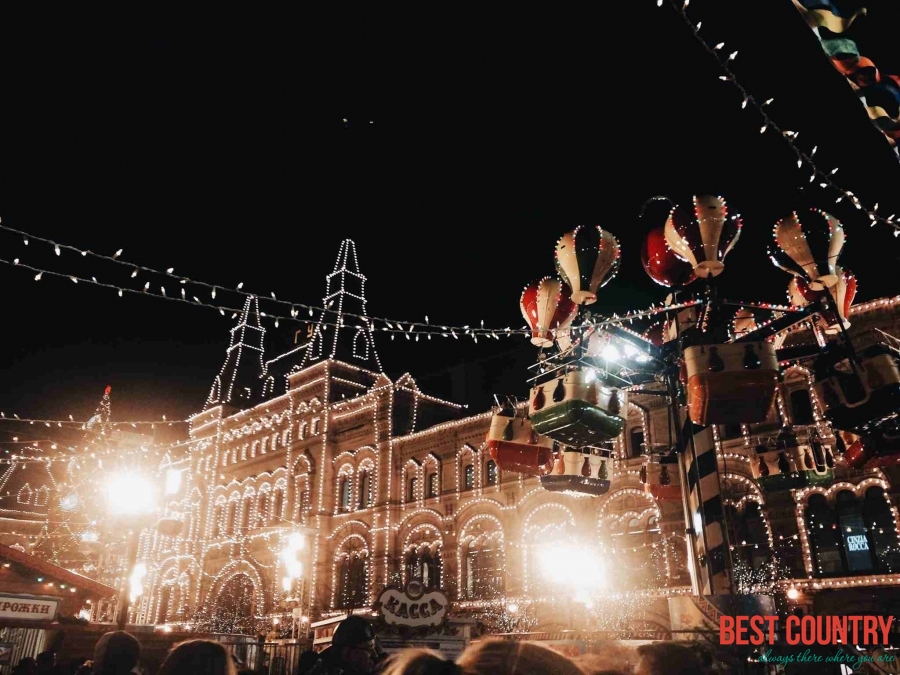Russian Holidays

January 1-5: New Year Holidays
Russians celebrate the New Year on January 1. Because Christmas is celebrated on January 7th, the days leading up to Christmas are also a part of the New Year-Christmas celebration. The New Year is celebrated with parties, food, toasts, and fireworks.
Some Russians will also celebrate the New Year according to the Julian calendar, on January 14th. This day, however, is a holiday celebrated privately with family members.
January 7: Christmas Day
Christmas is celebrated on January 7 in countries that have traditionally observed holidays according to the Eastern Orthodox religion. January 7 corresponds to December 25th on the Julian calendar, which was used in Russia during tsarist times. Russia has used the Gregorian calendar since 1918, but tradition dictates that Christmas is still celebrated on January 7.
February 23: Protector of the Motherland Day
Protector of the Motherland Day (also known as Protector of the Fatherland Day), formerly known as Soviet Army Day, celebrates Russia's men, especially military veterans, active servicemen, and fallen soldiers. It combines the meanings behind the United States' Memorial Day and Veteran's Day.
Springtime: Easter (Unofficial Holiday)
Easter in Russia is celebrated on a different date each year, just like in the West. Russians consider Easter and even bigger holiday than Christmas. Easter is celebrated with painted eggs, special foods, and possibly church services.
Week Before Lent: Maslenitsa (Unofficial Holiday)
Maslenitsa is the equivalent of Mardi Gras, and derives from a pagan holiday that celebrates the spring. Certain rituals may be observed during Maslenitsa, like the preparation and eating of pancakes (which symbolize the sun), the burning of an effigy of winter, and bathing outside in ice cold water.
March 8: International Women's Day
International Women's Day loosely corresponds to the celebration of Mother's Day in the West, though in Russia's case, all women can share in the celebration. Women are usually given gifts of flowers or chocolates on this day.
April 12: Cosmonaut's Day
Cosmonaut's Day celebrates Russia's achievement of sending human beings into space. While another version of this day is celebrated internationally, in Russia, the grave site of Yuri Gargarin (the first man in space) is visited, as well as monuments and landmarks related to space travel and achievement.
May 1: Spring and Labor Day
Labor Day in Russia has traditionally been politically charged. Marked with parades in the past, it is used as a day of relaxation for those who do not have a political agenda to emphasize at a rally or demonstration. It also recognizes trade unions.
May 9: Victory Day
Victory Day is an important secular holiday in Russia, celebrated with parades. Its significance arises from Russia's victory over Germany in WWII. Many Russians still consider this defeat heroic and worthy of memories and praise, despite the extensive cost to life that occurred in Russia as a result.
July 7: Ivan Kupala (Unofficial Holiday)
Ivan Kupala, or the Day of John the Baptist, is a day that mixes religious belief with pagan traditions. While the day is closely linked to the practice of baptism, this day is most enthusiastically celebrated by children, who dump water on unsuspecting relatives, friends, or passers-by.
Ivan Kupala also marks the "official" day when the conditions become appropriate for swimming during the summer months.
June 12: Russia Day
Russia Day is the day on which Russia declared sovereignty, and corresponds to the United States' Fourth of July or Independence Day. It is celebrated with parades.
November 4: Day of National Unity
Unity Day, or the Day of National Unity, is a new national holiday that resembles a holiday celebrated for centuries until the Bolsheviks came to power, which recognized Moscow's successful defense from Polish invaders. It replaces the November 7 holiday (Revolution Day), which celebrated the October Revolution.